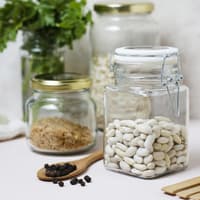
Effect of fructose on our body
Fructose stimulates the storage of fat as an energy source (this was only an advantage in earlier times of scarcity). And it does not fill us up. The desire to eat remains. Studies show: Excessive fructose consumption can increase cholesterol levels, blood pressure and the risk of heart attacks and strokes.
How much fruit is healthy?
Fruit is rich in fructose. But how much fruit is healthy? And should we therefore limit our consumption? No! On the contrary, most people eat far too little fruit. Two portions a day (and three portions of vegetables) are recommended. The harmful effects of fructose do not result from the consumption of melon & co. The main risk is the products of the food industry, especially sweetened soft drinks and cola drinks. The industry loves the sweetener fructose because it is sweeter than glucose and much cheaper.
So: eat fruit, but avoid soda & co. Ready-made mueslis, yoghurt drinks and other ready meals often contain fructose too.
You might also be interested in this:
Histamine and fructose intolerance: symptoms, treatment and diet
New study: Is a gluten-free diet healthy?
15 nutrition tips: What you should know about healthy eating
Wheat allergy: symptoms, causes and treatment
Wheat intolerance: 5 alternatives for allergy sufferers
Milk substitutes: The best alternatives to cow's milk
Going vegan: A far-reaching decision






